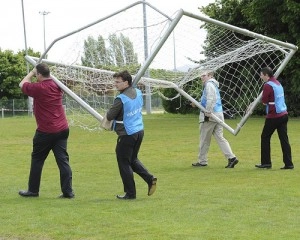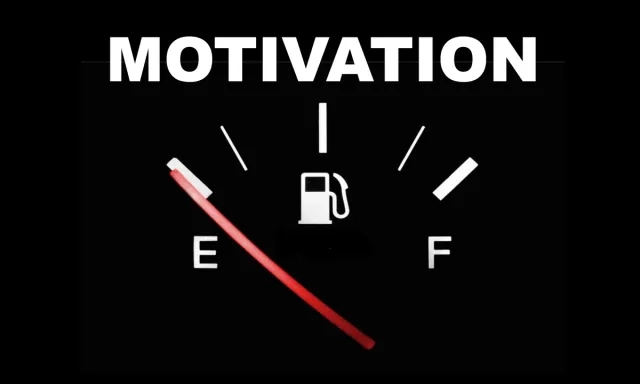When I was a kid in school, the Pizza Party was the Pinnacle of Achievement for the class. If we were granted a pizza party by the teacher, it was for something phenomenal that we had achieved… 100% participation in some special activity, or excellence on a particular test… in some more rowdy classes, it was just because everyone behaved appropriately for the same couple of days in a week 🤣!!!
The Pizza Party at Work
Back at the beginning of my career, I experienced a parallel – the catered lunch. I was on a team with a pretty specific focus on app support; we had a workload of tickets and that was how we received all of our work. It was a pretty overwhelming workload – a half-dozen of us had to manage a hundred tickets per day, triaging anything from automated system monitor alerts all the way to diagnosing post-implementation issues that had to be resolved by the respective app’s developer team.
As our backlog typically increased in size (we rarely had days when we could resolve more tickets than we received), it was a cause for celebration for the week when we finally caught up. Through a series of procedure changes and some heavy-duty research, we managed to resolve every ticket for the first time in more than a decade! Our manager responded by expensing a meal for the whole team, a catered deal where we got to enjoy lunch together in our conference room in celebration of our achievement. It probably doesn’t sound like much to you readers, but lemme tell ya – in the moment, we felt like we’d hit the jackpot.
The Cracks Begin to Show
I noticed an odd sort of problem later, though. At first glance it seems natural, but it still messes with the mind a bit – the goalposts had to move.
After all, we can’t just have a catered lunch every day, even though we kept that bucket empty for a couple weeks (and never again allowed it to grow signficantly). But still, what was a cause for celebration yesterday simply became the new standard. Again… not unexpected. That was sort of the goal; it just felt a little hollow. It left me wondering if maybe the idea of rewards and recognition weren’t quite the „solved problems“ we thought they were.
More Experiences, Different Pizza
Since those days, I’ve seen… and participated… in many different forms of „Employee Recognition“. I’ve seen some ideas that worked great, like the Twilio Track Jacket program (mentioned as part of this interview with Chief People Officer Christy Lake). I’ve seen some ideas that became a bit of a joke among staff (like a voucher for a free lunch at the cafeteria, or a pair of movie tickets). I’ve seen some that were a bit of a mixed bag, like being called up on stage at an all-hands meeting… which is great unless you’re a super-introverted engineer who finds public displays absolutely terrifying!
I’ve read tons of culture articles and playbooks and social media posts about the importance of recognizing the work that people do and celebrating them effectively and how to build a culture that motivates everyone to be the best they can be. There are many, many opinions… but it still seems like the results are hit-or-miss. How can we effectively recognize, reward, and motivate? Why is this so hard?
A Time When I Felt De-Motivated
Sometimes in order to see the right path, I have found that it’s helpful to take the wrong one and look at the effects. So when was a time when I felt very un-rewarded and de-motivated?
There was a time when I came up with an innovative education event for our organization. I gathered some folks to help me with my plan, and we figured out how to execute on a shoestring budget. We had accounted for everything – a venue, refreshments, a program to engage the team, even marketing of the activity.
The final step in the process was to get management to sign off on the budget (because despite the minimal amount involved, the rule was that management still had to sign off on any expenses). And this is where everything began to unravel…
By the time „The Normal Process“ got done with our idea, it was a faint shadow of the original plan. We executed on that, and it went well. I was recognized by management for my unique contribution, but the damage had been done: I’d lost all my enthusiasm and excitement for it.
And That Got Me Thinking
What if we’ve been approaching Employee Recognition all wrong? Possibly hearkening back to the pizza party in school, we’ve always sort of collectively assumed that the way to thank employees for a job well done was to give them something. Buy them lunch, give out a bonus, award a big-screen TV, engrave a plaque or give out trophies or provide a raise. (And don’t get me wrong– those are all admirable ideas that definitely have their place. I’m not saying I don’t like cash!)
BUT… what if the easiest way to reward and recognize quality work has been right under our noses all along?
TRUST
The reason I felt demotivated stemmed from feeling like the company didn’t trust me to have thought through my plan… they felt the need to come in and „adjust“ it. So what if trust is a currency of recognition and reward?
Not just any trust—visible trust. Trust that shows up as autonomy. As space. As a skipped approval step. As “go for it” instead of “let me review (tweak?) it first.”
When we feel trusted, we feel valued. We feel like someone believes not just in what we’ve done, but in what we might do next.
The recognition I received after the event felt hollow, because what I really needed was for someone to believe in the plan before it had proven itself. To simply say, “Looks great—run with it.” That would have lit the fire even brighter. As it stood, well… by that point you could’ve skywritten my name over the building, or even dropped a bonus that doubled my pay for the year, and it wouldn’t have the desired effect.
And I think that’s the piece we’re often missing in our reward systems: we delay recognition until after the fact. After the win… After the measurable result. But trust shows up before. It’s the statement of belief that leads to great work, not just the thing we hand out after it’s done.
So as we think about how to evaluate „good leaders“ versus „poor leaders“, here are some questions I think we should ask far more frequently:
- Can you show someone you believe in them by letting go of the wheel?
- Can you resist the urge to “just tweak it” and instead offer encouragement and support?
- Can you give someone room to try, and maybe even stumble, because you trust their intent and capability?
Sure, pizza parties are still great… always will be. But I think we’d all be amazed how powerful it is to have someone look us in the eye and say, “I trust your judgment—go for it.”
That we were trusted, celebrated, and seen.
And maybe that’s the real reward.





